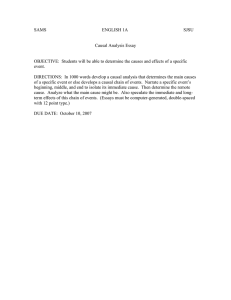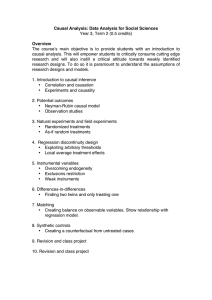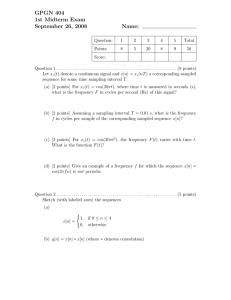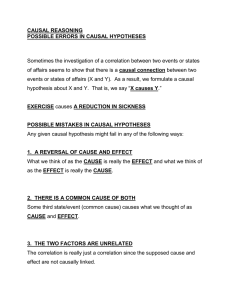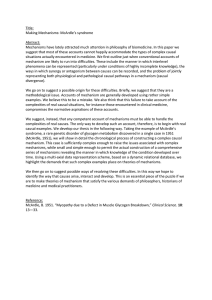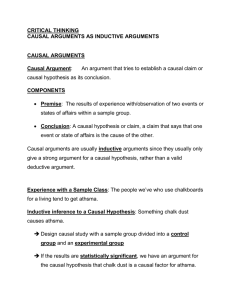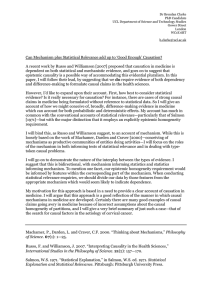Full
advertisement
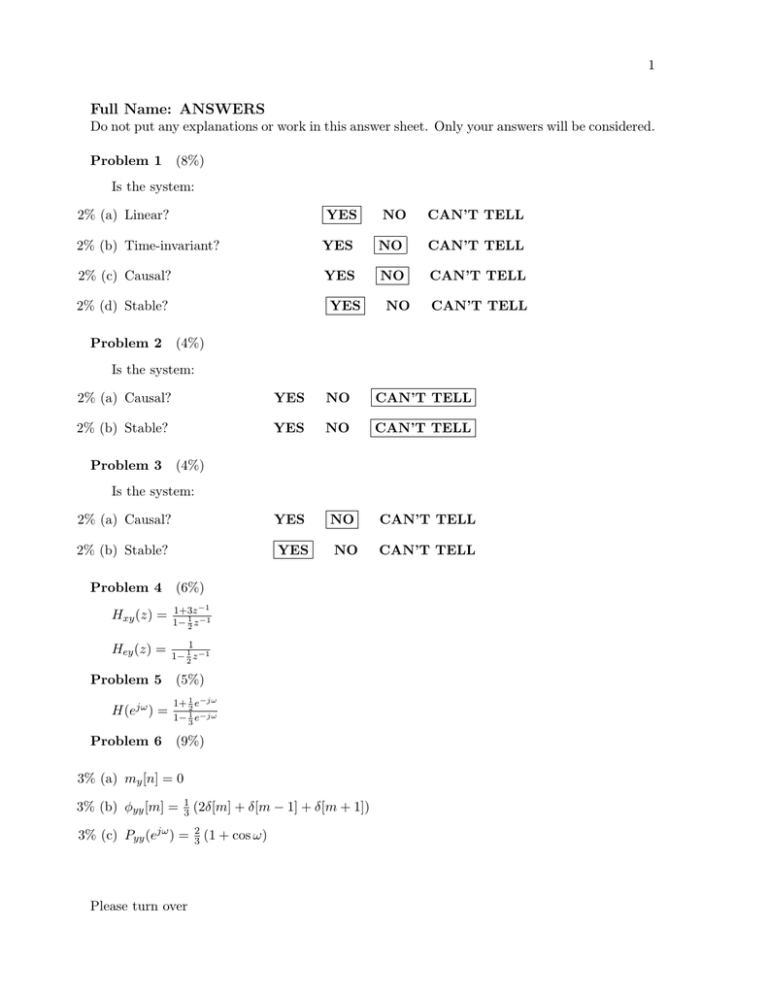
1 Full Name: ANSWERS Do not put any explanations or work in this answer sheet. Only your answers will be considered. Problem 1 (8%) Is the system: 2% (a) Linear? YES NO CAN’T TELL 2% (b) Time-invariant? YES NO CAN’T TELL 2% (c) Causal? YES NO CAN’T TELL 2% (d) Stable? YES Problem 2 NO CAN’T TELL (4%) Is the system: 2% (a) Causal? YES NO CAN’T TELL 2% (b) Stable? YES NO CAN’T TELL Problem 3 (4%) Is the system: 2% (a) Causal? YES NO CAN’T TELL 2% (b) Stable? YES NO CAN’T TELL Problem 4 (6%) Hxy (z) = 1+3z −1 1− 12 z −1 Hey (z) = 1 1− 12 z −1 Problem 5 H(ejω ) = Problem 6 (5%) 1+ 12 e−jω 1− 13 e−jω (9%) 3% (a) my [n] = 0 3% (b) φyy [m] = 1 3 3% (c) Pyy (ejω ) = Please turn over (2δ[m] + δ[m − 1] + δ[m + 1]) 2 3 (1 + cos ω) 2 Problem 7 3% (a) H2 (z) = (7%) 1− 14 z −1 1− 12 z −1 3% (b) H2 (z) unique within a scalar factor? YES NO 3% (c) Are x[n] and y[n] uncorrelated? YES NO Problem 8 (8%) The maximum such interval T is: Problem 9 π Ω1 +Ω2 (9%) 5% (a) The largest possible T is: strictly less than 10−4 4% (b) The estimate of A is Problem 10 EXACT APPROXIMATE (8%) 4% (a) yc (t) is xc (t) delayed by 3.7T1 and then stretched in time by T2 T1 . 4% (b) yd [n] is the sequence obtained by delaying xc (t) by 3.7T1 and then sampling at period T1 . Problem 11 (4%) Is the overall system LTI? Problem 12 NO YES (4%) y[n] = δ[n + 1] + 4δ[n] + 8δ[n − 1] + 8δ[n − 2] + 3δ[n − 3] Problem 13 4% (a) 4% (b) (8%) (i) Stable? YES NO CAN’T TELL (ii) Causal? YES NO CAN’T TELL YES (i) Stable? (ii) Causal? Problem 14 YES NO NO CAN’T TELL CAN’T TELL (6%) y(t) = s(t) cos (Ωc t + φ0 ) Problem 15 (8%) y[n] = (Circle one) Problem 16 y1 [n] y2 [n] (0%) The best estimate of my grade is: 100 y3 [n] y4 [n] y5 [n] y6 [n] y7 [n] y8 [n]
